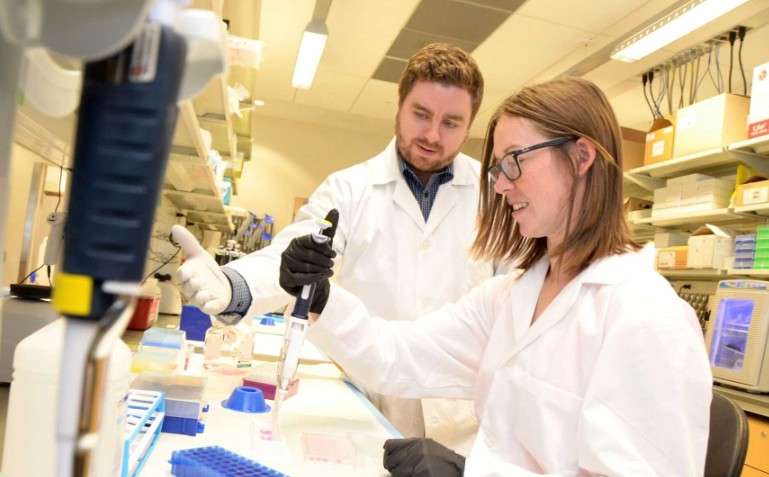Let us move into the exciting realm of health science careers and discover the six compelling job options that can become a reality.
From healthcare administration to clinical research, public health advocacy to pharmaceutical sales, the possibilities are as varied as they are exciting. All you have to do is to simply get the valuable educational foundation.
Health science is a new area of study that can get you ready for a basic job in healthcare or for more schooling like grad school or a professional degree.
If you have a health sciences degree, you have many different job options in clinics and other places.
To figure out the right job for you, learn about health science and the jobs it offers.
This article explains what health science is and lists some health science jobs, including how much they usually pay and what you would do in those jobs.
Jobs in the Health Sciences and Career Pathways
Health science experts say that a health science degree can be useful for many health jobs.
There are so many of them that even a short list may not be enough, below are some of them.
Health Care Administration
These personnel have important tasks, they plan, organize, and coordinate healthcare services.
They also oversee facilities, services, programs, budgets, and relationships with other organizations.
In hospitals there are typically three levels of healthcare administration roles.
The highest level, and the executives, focus on planning, making policies, working with the community, negotiating, and following federal rules.
Associate or assistant administrators, handle budgets, staff, education, information, and coordination among hospital departments.
Other administrators specialize in financial management, marketing, analyzing systems, planning, and dealing with labor matters.
Health Unit Coordinator
A Health Unit Coordinator is responsible for handling various tasks related to patient care at nursing stations in hospitals and nursing homes.
They might handle paperwork for admitting, discharging, and moving patients.
Their responsibilities can involve typing out doctors orders on a computer or by hand, looking at charts, recording information, and ordering things like diets, medicines, equipment, supplies, lab tests, and x-rays.
Health unit coordinators should have a basic understanding of medical words, medications, nursing procedures, and fundamental medical knowledge.
Medical Record Administrator
A Medical Record Administrator takes care of patient records in a hospital or healthcare facility.
They also check to see if the care patients receive is good.
Their job involves making sure that health information moves smoothly to all parts of the facility, ensuring that the information about patients is correct, and keeping a system that let authorized people access medical information quickly.
Medical Record Technician
A Medical Record Technician runs the everyday tasks of the health information management or medical record department.
They check medical records to make sure they are complete and correct.
Therefore, organize the information in the patient’s record, and change the names of illnesses and treatments into standard codes.
The technician also takes pictures of records, puts them in files, gathers data for the medical staff, writes down medical reports, gets records when needed.
And shares information with lawyers, insurance companies, and others allowed to see it.
They also help with making sure patients get good care and keep the health information systems running.
Medical Secretary/Clerical Worker
A Medical Secretary or Clerical Worker needs to have good secretarial skills and know the special words used in medicine.
Their usual duties include welcoming patients, typing out medical histories, taking phone calls, setting up appointments, getting medical records ready, writing down what happens, filling out insurance and government forms, ordering medical stuff, and dealing with letters.
Cytotechnologist
Cytology is all about learning about cells, how they are built and what they do.
Cytologists use special methods to get cell samples ready for a microscope, and they look at these samples to figure out if someone has a disease.
Cytotechnologists, in particular, use microscopes a lot.
They check body cell samples for any strange things that might show there is a non-cancerous issue, an infection, inflammation, or something more serious like cancer.
Conclusion
A Health Science Degree opens up a wide array of career opportunities, providing you with the knowledge and skills necessary to excel in various healthcare and wellness fields.
From healthcare administration to clinical research, public health advocacy to pharmaceutical sales.
Therefore, this versatile degree equips you with the tools needed to make a positive impact on individuals and communities alike.
However, by pursuing a Health Science Degree, you embark on a journey of personal and professional growth.
However, setting the stage for a fulfilling and dynamic career in the ever-evolving landscape of healthcare.
Therefore, seize the opportunity, harness your passion, and embark on a journey towards a brighter, healthier future with the many exciting job prospects that await you in the realm of Health Science.
Related Article
- 10 High Paying Health Related Jobs and Careers with Their Annual Income
- Claims Processing Software | Management of Healthcare, Insurance, Employee
- Healthy Ways to Guarantee Public Cloud Security: Best Practices & Guidelines




![[Udemy] 15 Best SQL Courses and Certifications to get you that IT Job 15 Best SQL Courses and Certifications at Udemy](https://hybridcloudtech.com/wp-content/uploads/2021/02/15-Best-SQL-Courses-and-Certifications-at-Udemy-100x70.png)


